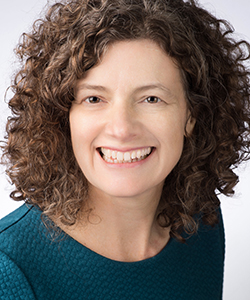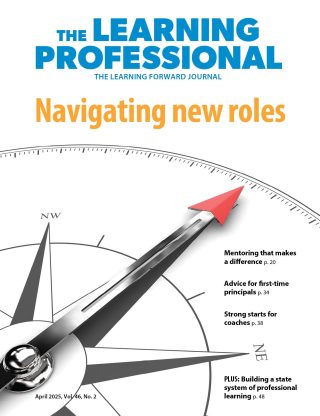Ideally you’re in a learning system with opportunities to learn collaboratively throughout the workweek and school year. The summer, however, can open other kinds of learning doors. Perhaps you’re on your own more than usual or freed from a standard schedule. Below are several strategies for giving your brain a summer stretch.
Take your mentor out for ice cream. The release from the confines of the school year offers an opportunity to reflect on your accomplishments in a more relaxed environment. Buy your mentor a scoop of mocha chip and ask for insights on what went well and what you might try next year.
Craft a Pecha Kucha on your biggest mistake this year. Creating a short presentation for others on a mistake — and, most importantly, what you learned from it — offers an opportunity not only for you to reflect but also to demonstrate your openness to insights from others and willingness to take risks.
Examine your assumptions. What are your most deeply held assumptions about yourself as an educator? About the work you do with other educators? About the students in your school or district? Take a step back and look at the ways your fundamental assumptions inform the way you approach your work. Are you happy with what you see and what changes might you consider?
Read a book. Maybe you’ve set aside a biography of one of your heroes or you have a stack of leadership texts to explore. Or perhaps a dystopian novel will shake you up in new ways. See several suggestions on p. 72.

Join a neighborhood association. Your community needs the communication and decision-making skills you’ve developed at the school or district level — and you might find new strategies when you practice those skills in a different environment.
Immerse yourself in genealogy. Following the branches of your family tree takes you through history at so many levels, from the personal to national and international developments.
Watch a video. Educators have a window into other classrooms through teaching videos. Or maybe you’re ready for something completely different. YouTube can offer all kinds of lessons from experts, whether on playing the ukulele or installing a dishwasher.
Make yourself uncomfortable. Put yourself in an environment you wouldn’t typically choose and see what you notice about yourself and others, whether through a new cuisine, a different religious service, or a new way to travel to do your errands — on the bus or on your bicycle instead of your car, perhaps.
Revise a favorite lesson. If you’ve had success with a particular lesson for years, maybe it’s time to consider taking it up a notch next year. It isn’t just your difficult lessons that need your close attention.
Go to work with your best friend, spouse, child, or neighbor. Maybe your friend has a job in an industry your students need to know more about. Or maybe you can learn leadership lessons from a neighbor who manages a local restaurant. See who might let you tag along for a day of wearing a hard hat or visiting a local courtroom.
Introduce yourself to someone in your community. Have you admired someone in your community from afar? Take an opportunity to touch base and find common ground.

Tracy Crow served as chief strategy officer for Learning Forward.
Recent Issues
BUILDING BRIDGES
December 2024
Students benefit when educators bridge the continuum of professional...
CURRICULUM-BASED PROFESSIONAL LEARNING
October 2024
High-quality curriculum requires skilled educators to put it into...
LEARNING TO PIVOT
August 2024
Sometimes new information and situations call for major change. This issue...
GLOBAL PERSPECTIVES
June 2024
What does professional learning look like around the world? This issue...












